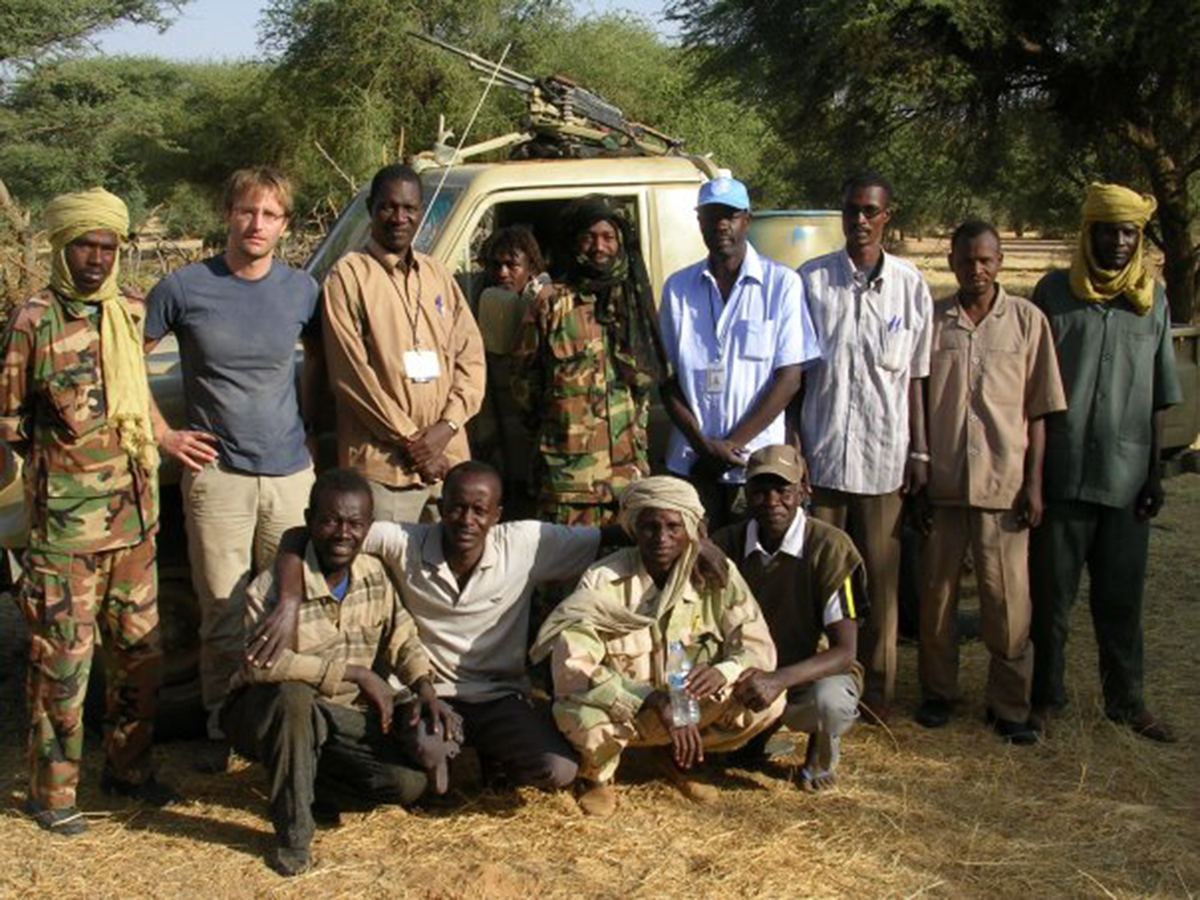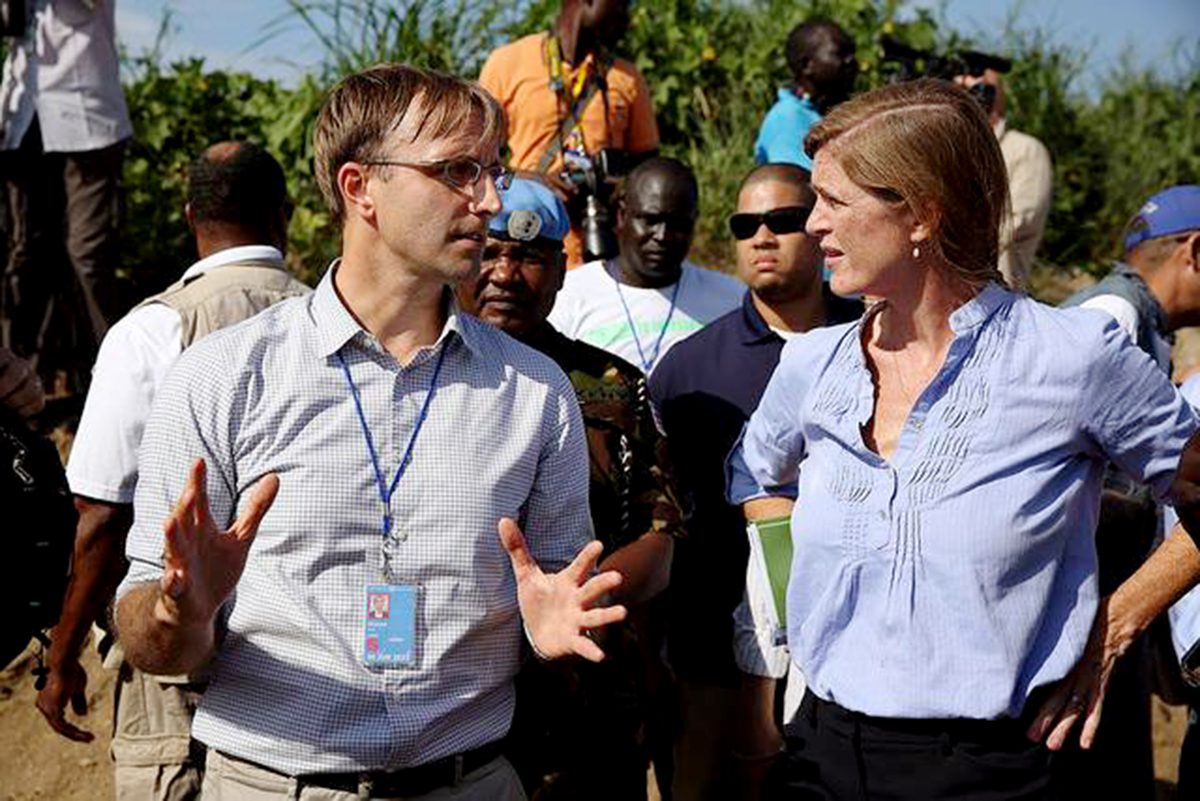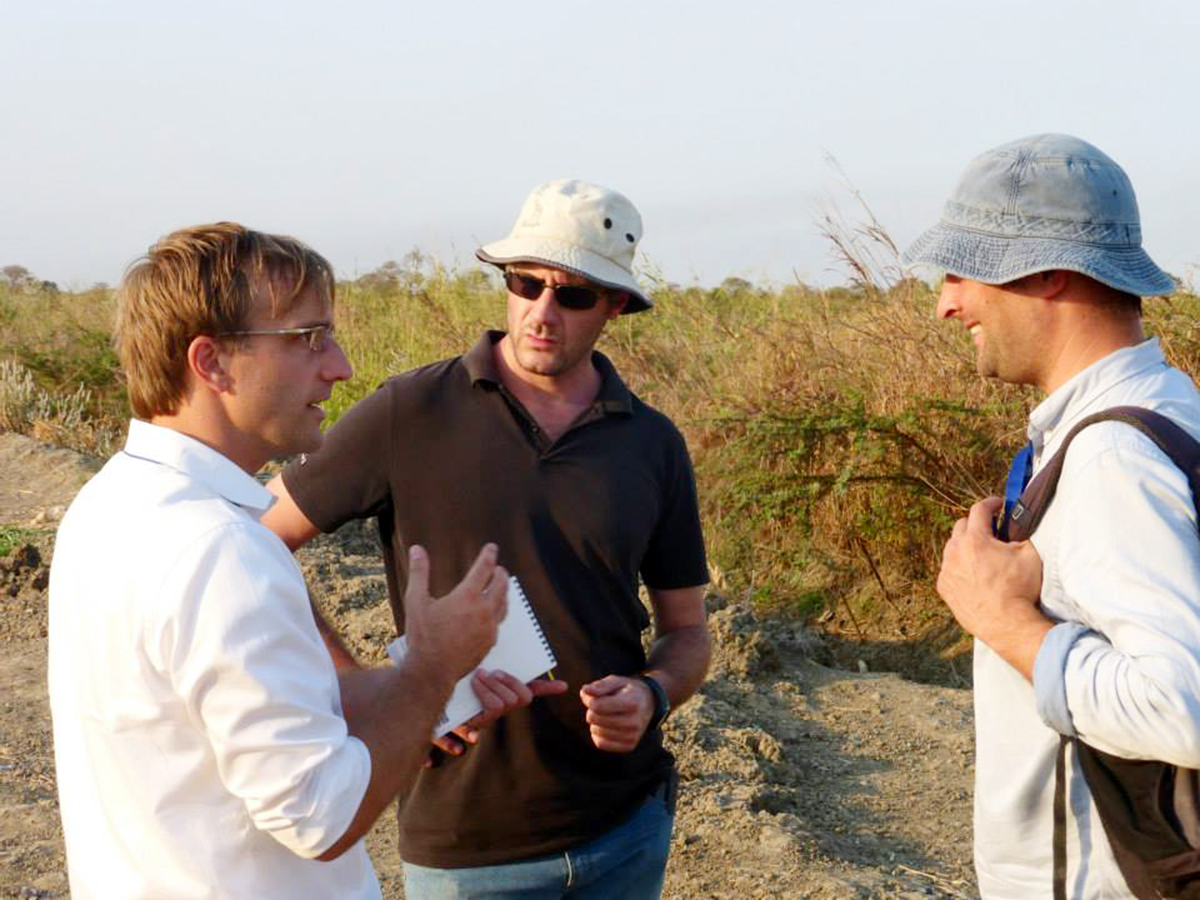Reading time 10 minutes
THE INTERNATIONAL EXPERIENCE OF DERK SEGAAR
Coming home
Derk Segaar studied in New York, was a correspondent in Africa and worked for the United Nations for many years. During this time, he was closely involved in the work of the Red Cross. He made the switch three years ago and has been head of International Aid at the Dutch Red Cross since 1 January.

"I left the Netherlands when we still paid in guilders," Derk Segaar recalls, laughing. On 1 January 2022, he started as Head of International Aid at the Dutch Red Cross after having worked abroad for more than 20 years. As a United Nations correspondent and staff member, he saw the work of the Red Cross from a variety of angles. In 2019, he made the move to the International Red Cross where he managed global communications. At the end of last year, he moved from Geneva to his native country. "It really feels like coming home," he says, "both to the Netherlands and to the Red Cross family."
Vapour circle
"Climate change is the crisis of our time," says Derk. Developments are rapid and knowledge about the climate is growing. Back in the 1990s, he was already working to make people aware of the risks of greenhouse gases to the atmosphere. It was the time of the Kyoto Treaty, where industrialised countries agreed to reduce greenhouse gas emissions. Inhabitants of developing countries were already noticing the impact of the changing climate. "We brought these people to the negotiating table to speak from their experience. Back then, I was already working with the Dutch Red Cross, where the Climate Centre was founded."
Rebels
But Derk wanted to go out into the world himself. After studying International Cooperation in New York, he decided to spread his wings to Africa where he worked as a correspondent for an independent news agency. He travelled through Sudan with a tent and reported stories about rebels and militias. He also hitchhiked with aid convoys, flew in helicopters of the United Nations World Food Programme and travelled with nomads. The impact of the war in Darfur on this group touched him deeply. "They had no representatives or spokespersons, because they were always on the move and mainly trying to survive in very difficult conditions," he recalls. He saw that his stories also served as a warning to aid workers and donors who could thus receive relevant information in time and take action if necessary, for example to reduce the impact of a disaster.

Abduction cases
He thought about how he could get involved with people in vulnerable groups. After writing about so much misery, he made the switch to the humanitarian sector. Because of his good relations with armed groups in Sudan, the coordinating branch of the United Nations asked him to improve the organisation of the security of humanitarian aid in the area. Derk had access to the African warlords. He was able to negotiate well. He was close to the relief operations and again came into contact with the Red Cross. With a representative of the International Red Cross, he compared lists with names of local commanders and rebel leaders. Off the record, there was good cooperation. "I was naive too," Derk confesses, "and thought I was safe under the UN flag." But this protection couldn't always be relied upon, he knows, due to a number of violent incidents and the many kidnapping cases that were going on at the time. In fact, Derk's role often required him to negotiate in the case of kidnappings. "In general, I had good relations with those armed groups. I was even invited to weddings and funerals."
Opportunities
In his 20 years with the United Nations, he was involved in several relief operations in Kenya, South Sudan, Somalia, India and during the massive Ebola outbreak in West Africa in 2014 and 2015. His journalistic background was very useful. Derk sees the key role for communication, also in the humanitarian world. "If people don't know what you're doing, it's like it doesn't exist," says Derk. "Telling the story of what you do is crucial. During the corona pandemic, the Red Cross occupied a very prominent place. Now there are opportunities to tackle climate change."

Prevention
Climate change is increasing the risk of disasters and many more people will need humanitarian assistance in the coming years, he expects. "As the Red Cross, we are already seeing the effects of climate change around the world. This is also reflected in the models of numerous climate scientists and organisations and in the communities where we are present with our aid workers. But we need to do more than help after a disaster. We should work with local organisations to ensure they take measures that help prevent disasters. It would be good to set up early warning systems. Preferably solutions based on nature. Nature can sometimes help prevent disasters. Examples include planting trees and restoring mangrove forests. This provides protection against flooding. It is also important to work out innovative financing structures, such as we are now developing together with the Danish and Philippine Red Cross," explains Derk. "Prevention is the watchword," he concludes. "The Netherlands is setting a good example with excellent water management." So, it is 'home sweet home' for him in many ways.